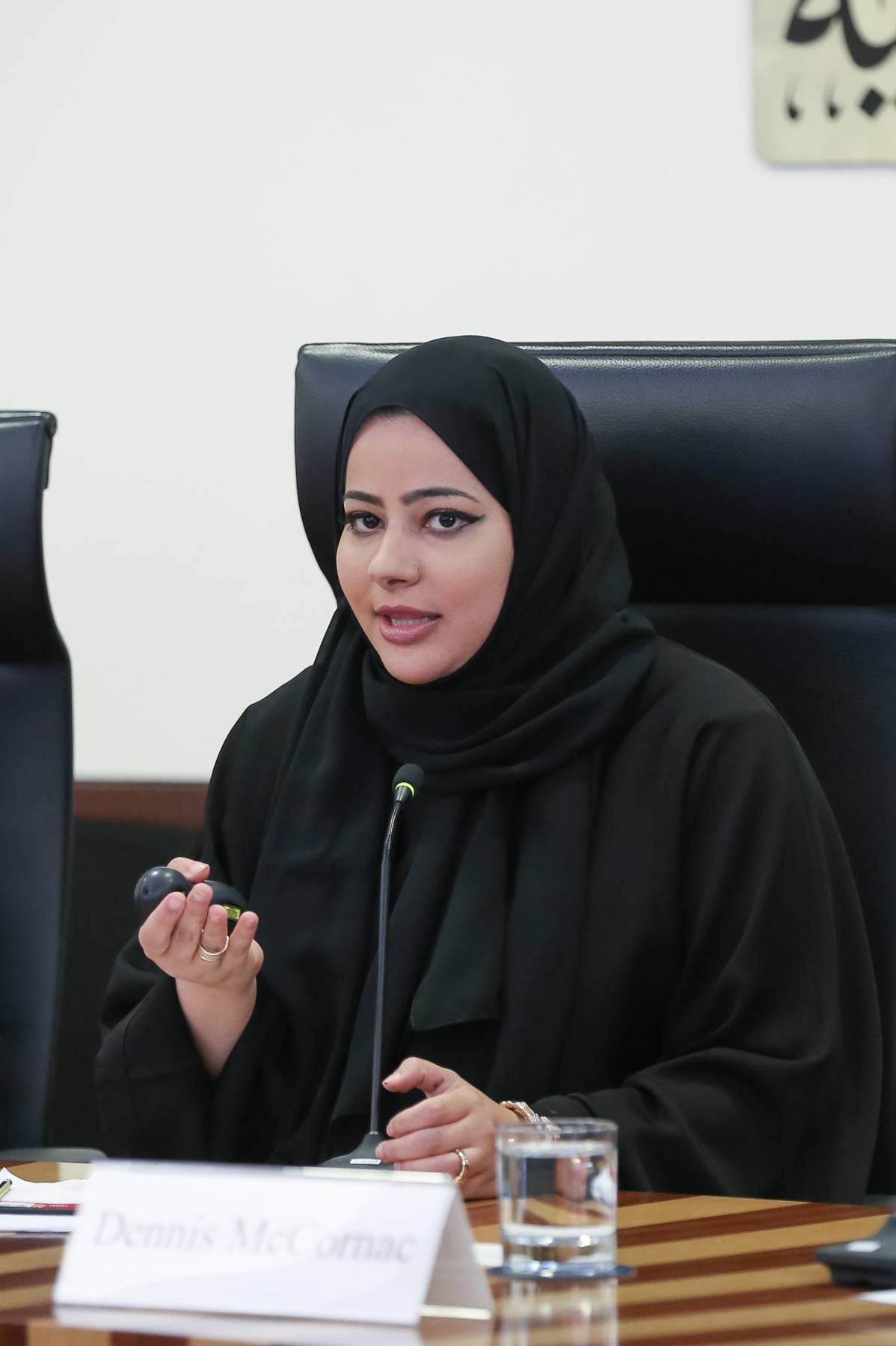Dialogue Series, Regional Studies
The Impact of Business and Political News on the GCC Stock Market

Alanoud Al-Maadid, Assistant Professor of Economics at Qatar University, examined how politics and economics are intertwined in the relationships of the members of the Gulf Cooperation Council (GCC), an alliance founded in 1981 that includes Saudi Arabia, Kuwait, the United Arab Emirates, Qatar, Bahrain, and Oman. She explored these dynamics by looking at the effect of news on GCC stock market returns in a Focused Discussion, titled “The Impact of Business and Political News on the GCC Stock Market,” at CIRS on March 24, 2019.
Al-Maadid explained that the forces of supply and demand is a general rule in economics. However, she said, behavioral economics—the effects of psychological, emotional, cultural, and social factors on decision making—may often go against what is implied in the standard economic model. “In behavioral economics, people are sometimes irrational and unpredictable, and they can make unpredictable choices,” she said. Thus, the field of behavioral economics has many practical applications, and is often used by policymakers, diplomats, and marketers.
Al-Maadid focused her presentation on the financial performance of GCC stock markets, and the high degree of market integration between GCC countries. “GCC stock markets seem to have similar trends,” she said, “when oil prices go down, stock prices go down” across the region. At the start of the GCC crisis in 2017, in which Saudi Arabia, the UAE, Bahrain, and Egypt instigated a blockade against Qatar, most of the stock prices in the GCC went down.
“When the stock market goes up, the news does not affect the stock market so much. However, when the stock market is down, if there is negative news, it affects the stock markets more.”
In her research, Al-Maadid found that GDP in the GCC is affected by positive and negative news. She used a linear dynamic model to illustrate how returns of stock prices are affected by both business news and political news. Al-Maadid collected weekly data on GCC news from Bloomberg to create an index of negative and positive political and business news. Control variables such as oil prices, macroeconomic announcements, and interest rates were also utilized.
In the period surveyed (2010–2018), Al-Maadid found that negative political news never exceeded the twenty percent mark—meaning that news content in GCC newspapers is predominantly positive. There was, however, considerably more negative business news content. “Most of the news coming out of the GCC is positive, especially political news. In business news, there is more negative news, but it is still less than thirty percent” of the total news content, she said. As part of her investigations, Al-Maadid used a tool found in financial econometrics, the Markov switching model, to measure the dynamics of negative news. She noted that “When the stock market goes up, the news does not affect the stock market so much. However, when the stock market is down, if there is negative news, it affects the stock markets more.” Results further revealed that political news has less impact than business news, and the stock market does not react as much to political news.
In conclusion, Al-Maadid highlighted the GCC’s “cross-border effect,” arguing that “When there is news from Saudi Arabia, Qatar, and the UAE, the effects are not only domestic—it affects all the other countries,” in the GCC. This is attributed to stronger economies and more integrated stock markets. Thus, Al-Maadid argued, the impact of the blockade against Qatar has negatively affected all GCC countries. If the blockade is lifted, it will have a positive cross-boundary impact for all stakeholders involved, she asserted.
Article by Khansa Maria, CURA Publications Fellow
Alanoud Al-Maadid is the 2018–2019 CIRS Qatar University Fellow. She received a PhD in Economics and Finance from Brunel University London in 2016 with a dissertation on “Effects of Oil Prices, Food Prices and Macroeconomic News on GCC Stock Markets.” She is a recognized researcher in the fields of economies of time series, the GCC stock market, and behavioral finance, and has taught courses on the Principles of Macroeconomics and Monetary Policy, among others.